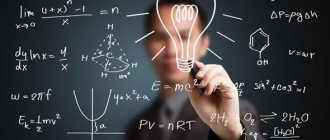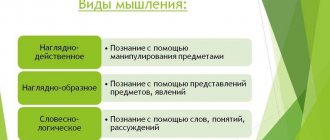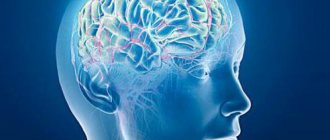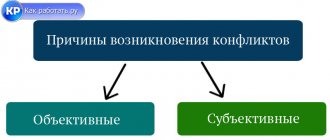Adviсe
- Giftedness
- Talent
- Genius
- What makes talented people different?
- Conclusion
Intellectual skills, creative tasks of a person, potential are explained by various concepts used in scientific works. The terms are of interest to scientists, psychologists and educators. The opinions of researchers are the basis for creating pedagogical and psychological methods that allow people to find directions for development.
Giftedness
Scholars have not established a universally accepted term that is used in all classical educational books. Scientific books use the option proposed by psychologist V. Stern.
Giftedness is a person’s ability to adapt to emerging needs, to act to achieve goals, perceiving external factors, and this is done consciously with the help of developed thinking.
Despite criticism of the concept by some scientists, the term is still used for interpretation. It is generally accepted that this ability is a natural gift that cannot be determined by heredity. Giftedness is a function of a person’s living conditions, a function of a developed personality, therefore it manifests itself at every stage of development and is directly related to the life of an individual.
Natural potential cannot be determined by a person’s talent. Inclinations make up the spectrum of conditions that are required for personality development. Giftedness is used not to express internal inclinations for self-improvement, but to characterize a person, internal abilities, and internal abilities and external manifestations are closely related.
The manifestation of the inherent potential is possible under favorable conditions for development and achievement of assigned tasks. It is used to express the potential that a person has, the psychological components that allow him to create a reality that corresponds to his wishes and take the necessary actions. Suitable external conditions for dynamic change are imperative. For example, a student needs a curriculum. Stimulating development requires serious demands that are achieved with effort.
Giftedness can be special. In this case, the relationship between internal potential, mental characteristics and the requirements of a certain sphere that the individual chooses is considered. The correlation manifests itself not only at the abstract level, but also in ongoing events, as a result of which a person’s abilities are formed. The individual may be capable of completing assigned tasks. At the same time, the manifestation of general talent is assumed, which must be assessed taking into account external factors influencing a person’s life.
In the scientific literature, the term causes active debate. Many scientists are convinced of the absence of general talent, which must be understood as intellectual potential, memory, and the ability to solve assigned problems. To compare mental and real age, an intellectual quotient is used, which is designated IQ and allows you to determine the capabilities of an individual. IQ determines the potential inherent in nature and the speed at which a person develops, as a result of which the level of development at a certain stage of life is established.
In the psychological sphere, giftedness is part of the human structure, so it has a close connection with character. It is assumed that characteristics manifest themselves under the influence of upbringing and external conditions, the favorability of which varies. Psychologists look at the type of thinking and temperament, trying to determine the capabilities of individuals.
Special abilities directly depend on the field of activity in which a person is involved. The activity must be active and effective for the manifestation of properties that are characteristic of the individual.
As a result, what stands between giftedness and special abilities is the ability to correlate the level of human development and the pace of improvement. These aspects are considered by teachers who are responsible for the future of children.
In genetic terms, the relationship between general and special development is stable. For this reason, geneticists and scientists believe that a person’s future is determined not only by external conditions, but also by natural potential, which is determined by genetics. Understanding giftedness depends on the significance of the chosen direction of activity, the success of other people who show their inclinations.
Scientists believe that giftedness is a quantitative concept. The qualitative approach cannot be fully used. The question regarding the definition of inherent abilities remains open.
At the same time, C. Spearman notes that mental talent should be determined by the mental energy that is characteristic of a person. This quantitative approach to interpretation is correct, because it allows one to assess the development prospects of an individual.
Abilities differ at a qualitative level: one person has the capabilities and potential for one area, and another person has the potential for another area. External conditions influence the degree to which internal potential is manifested, so they deserve attention.
Psychologists evaluate qualitative differences to open people’s prospects and proper self-development. Researchers study information and experimental materials to create an assessment of an individual's abilities. The goal is to determine the person's abilities that will allow him to achieve success.
Why you can't realize your own potential
Thinking about possible self-realization, some resort to the advice of psychologists, engage in self-analysis and focus on the examples of others. At the same time, dreams continue to remain dreams, and when you think about the possibility of realizing yourself, you become sad, because only a few become successful. It is quite possible to realize your potential if you use these tips:
- Be clear about what you would like to do. What area are you interested in, where would you like to express yourself and constantly develop?
- Devote a lot of time to your favorite activity. Initially, this may not bring the expected income, but if you systematically continue to do what you love and believe in success, then everything will work out.
- Form a support group. You need to find those who like what you do. Let these be your first clients or fans of your work. The main thing is that there are those who appreciate your talent. This will motivate further activities in the chosen direction.
- Do what you love systematically. If work starts out regularly and then is abandoned for an indefinite period of time, success will not be achieved. The main thing is to tune in to achieving your goal step by step and celebrate even minor victories, which will serve as excellent motivation for further action.
- The reasons why you cannot realize your abilities in a practical way may lie in the fact that you have not made enough efforts. You can think through the smallest details in your head of how things could be, but it is much better to take some action, even if it is minor.
Talent
Talent is a person’s ability to achieve success and recognition in areas in which initial potential is realized.
The degree of inherent potential determines the ability to act originally and independently, to solve assigned tasks, regardless of their specificity and complexity. Talent presupposes the potential to show inclinations in the field, offering new ideas, implementing original and perfect actions, and achieving respect at the public level.
The child shows the first signs of inherent talent, which is realized in a certain direction. In some cases, manifestation occurs later, for example, in adulthood during significant events. Talent develops and is realized if favorable conditions arise in culture, history, social order, if a person receives a full education.
Talent manifests itself in all areas, not just in art. Realization occurs in organizational work, pedagogy, technology and science. The sphere is determined by the underlying inclinations.
To develop talent, persistence in searching for areas of self-improvement and the manifestation of first works is required. For this reason, talented people should be drawn to work, without which it is impossible to imagine life.
Abilities and potential are the basis of talent. The range of inclinations and the ability to implement original and promising ideas are characteristic of the individual, therefore they are considered a unique gift.
The results of actions, the heights that a person reaches by making efforts, make it possible to understand the presence of talent or to refute the assumption. Results that are novel and original are the basis for forming an affirmative opinion.
What types of abilities are there?
Answering the question of what abilities are, psychology, as a science, identifies several classifications. According to one of them, abilities are general and special. In the first case, we are talking about personality traits that allow her to achieve success in many types of activities. For example, developed intelligence, creativity and inquisitiveness are equally useful in science, journalism, politics and other professions. In the second case, a predisposition to a specific activity is implied. This may be the ability to clearly distinguish sounds or keys, which helps in music, or the ability of a person to visualize his thoughts on a canvas.
Most often, general and special skills are interrelated. For example, someone has the talent of an artist, but in this he is helped by developed spatial and figurative thinking, which are broader concepts.
Take the brain hemisphere test
Also, human abilities are of the following types:
- Intelligent;
- Structural and technical;
- Logical-mathematical;
- Creative;
- Literary;
- Musical;
- Physical;
- Interpersonal-communicative.
Intellectual ones determine the ability to assimilate new information and reproduce it in a specific situation. They play a particularly significant role for pupils, students and scientists.
Structural and technical ones allow you to create new mechanisms or improve existing ones. Inherent in people whose hands are not only “golden”, but also grow from where they need to be.
Logical-mathematical ones are relevant not only for mathematicians, but also for economists, accountants, programmers, as well as people who are fond of gambling.
Creative ones depend on the level of development of imagination, the ability to visualize one’s thoughts or emotions. They turn out to be useful even at the everyday level, when you have to come out of various non-standard situations in an original way.
Next come literary ones , which, although they are also creative, cover purely literary paraphrases, from original SMS messages to prose or poetry.
Musical music is as ancient as humanity itself. The ability to feel the rhythm and reproduce melodies yourself has always been equally valued.
Physical exercises allow you to make the most of your body’s capabilities. They are applicable in many areas, from dance to sports or military training.
Interpersonal and communicative characterize the level of development of empathy and the ability to establish connections. They are especially effective for businessmen, politicians, public figures, journalists, and psychologists.
What makes talented people different?
Researchers interact with talented individuals, understanding how they differ from ordinary citizens. Talented individuals experience dissatisfaction with the results of their work, as a result of which they strive for self-improvement, self-education and a change in thinking in order to achieve their goals. Geniuses refuse many offers, concentrating on the desired results.
Pianist G. Neuhaus noted that geniuses and talents are born. Despite this, people create a culture that varies in breadth, democracy and loyalty of manifestations. Favorable conditions allow people with inherent potential to become geniuses, talents, and achieve success. For this reason, social society and the specifics of upbringing determine the possibilities for the manifestation of inherent potential and talent.
There is an opinion that nature rests on the children of talented parents. This opinion is confirmed by experience. Talent is inherited to a small extent. Research has led to the following conclusions: mental skills are closer to biological parents, which is due to the hereditary pattern, and not to adoptive parents. Similarity in potential and inherent inclinations does not appear in every situation, and the similarity decreases as a person grows older, who is faced with a different upbringing scheme, experiences personal events, and undergoes changes based on external factors.
Results are achieved not only on the basis of natural abilities, but also under the influence of motivation, conditions for the manifestation of existing potential. Pensioners get a chance to show their talent, although during their life there were no favorable factors for discovering inclinations. Over time, retirees achieve success they never dreamed of before.
The concept of human self-realization
This concept can be interpreted slightly differently in different areas, but the main essence remains the same in any of them. In a general sense, self-realization is the activation of the full potential and abilities of the individual, the active life position of the individual to realize their capabilities in various areas of activity and relationships within the framework of individual potential.
This process involves the realization of one’s own abilities, skills, knowledge and talents, regardless of whether they were innate or acquired. It is permissible to implement both prosocial and antisocial elements of implementation. Actions must always be purposeful and conscious, perceived by the individual as important components of his existence.
Conclusion
Scientists debate the nature of human potential. Disputes are developing actively. Is potential an innate gift? Does potential development occur during life? Is it worth paying attention to the saying: the manifestation of talent is one percent of natural ability and 99% of sweat? Each point has supporters and opponents.
The biological influence on abilities and their manifestation depends on genetic inheritance. Upbringing and favorable factors reveal inclinations and accelerate development. The potential will appear without teachers and psychologists, but later.
Other scientists are convinced: the psyche and character develop in the process of education. For this reason, inclinations are formed in people. The children of primitive peoples received instruction and then conformed to the educated principles. Mowgli children, under the influence of unfavorable conditions, lose contact with society.
Abilities are formed and developed on the basis of inclinations, hereditary and innate. Potential, knowledge and skills characterize a person as an individual, a subject of activity.
Psychologists and scientists have not come to a single concept within the framework of personality theory, but in every era geniuses and talents are born who gain popularity and achieve success.
Realize your abilities as a freelancer
Realizing your abilities as a freelancer will require some time and effort. It is important not only to find a decent job, you need to be able to express yourself, to clearly understand what exactly you want to achieve.
It's better to make a plan for your own financial success. How do you see yourself in a year, two, five, etc.? Why are you attracted to remote work, what can it give you? It’s good if you have freelance friends who can give important practical advice, tell you what you’re doing wrong at the initial stage and how you can correct it.
It also makes sense to focus on freelancer forums or various articles on freelancing. The best way to decide on life goals is the desire and desire to try yourself in an area that interests you. Only then will there be a clear understanding of whether you really want to do this. It is possible that the target was false due to the lack of complete information about it.
Freelance exchange Author24 helps beginning freelancers realize their abilities and unleash their creative potential. Those who wish can get a job and prove themselves worthily in freelancing.
The Author24 website provides complete information about possible cooperation for authors. The main goal of the freelance exchange is to provide direct assistance to students in solving the problem of writing academic papers. Work helps a freelancer achieve decent financial performance with a maximum degree of interest in it.
Several degrees of ability
- First degree - gifted person. This is a person who has a wide range of interests; he can interact with other people through different types of communication (verbal and non-verbal). Giftedness is the first degree of ability, and many children have it early in their development.
- The second degree is just talent. This is a combination of several abilities that manifest themselves when there is daily practice and training. Therefore, talent can be developed if you actively study every day, but you need to be careful to correctly understand the mood of the child whom the parent takes to this or that section. After all, it very often happens that parents take their children to places where they were not able to realize themselves at one time.
- The third, highest degree is genius. These are abilities that were best developed by many scientists and inventors, which is why now we can listen to the radio and use mobile communications. In this case, inclinations are talent identified in time, which was directed in the right direction.
Stages of self-realization
Traditionally, this process involves two successive stages:
- The formation of a general mechanism of self-realization.
- Maintaining the functioning of the mechanism and improving it through self-management and self-knowledge.
The first stage of self-realization is the struggle between individualization and socialization. The outcome of this confrontation is marked by the formation of personality, the formation of certain abilities and skills, and the emergence of value guidelines. The end of this stage coincides with the period when a person managed to make some contribution to society and somehow realize himself in it.
At the second stage, the created mechanism is improved in every possible way, allowing you to achieve new goals and continue to hone your chosen skills, talents and abilities. The transition from the first to the second stage usually occurs with the end of schooling, while the first self-realization of students in society is typical for the preschool and school periods.
It is worth noting that some individuals never move to the second stage due to a lack of need for self-realization. They follow further by inertia or, as they say, “go with the flow.” Such people do not achieve their goals (or do not set them at all) and live exclusively in their own comfort zone, without leaving it unless absolutely necessary.
How to develop a child's abilities?
As we have already found out, there are many talented people. Some play the violin, some study languages, some draw well. But in order for talent to develop, effort must be made. There are several rules that must be followed in order to send the child where he needs to go.
Let's take, for example, a five-year-old girl whose mother noticed that her daughter often draws with colored pencils. How to identify whether it is talent or just drawings, like all children.
- You need to ask your daughter to draw something specific, for example, the simplest thing - a house in the village and a cat next to it.
- If a child’s drawing has a lot of colors that are laid out beautifully and neatly, we can assume a penchant for drawing.
- In this case, you need to ask the girl if she wants to learn how to draw even better; this answer will determine whether you sign up for a drawing studio now or next year, when she is ready.
- When determining abilities, talk to the child, take into account his opinion, communicate with him as with a future genius.
- The choice of teacher and school must be approached very carefully, because unprofessional teachers can ruin the emerging talent.
- And lastly, when a child is practicing and developing his talent, be interested in the results and praise him even for small successes. This will help in its development.
So, now it’s clear what rules you need to follow in order to correctly recognize talent. And remember that inclinations are the base of a person’s talents and skills, which you need to be able to identify in time.
Diagnosis of creative abilities
A universal technique for measuring the level of creative abilities is the Guilford technique, which exists in various modifications. Qualities of creativity that can be identified using this method:
— originality in drawing up associations;
— semantic and semantic flexibility;
— ability to create new ideas;
— level of development of imaginative thinking.
In this study, the subject is offered various situations, a way out of which is possible only with a non-standard approach, which presupposes the presence of creative abilities.
Qualities that a respondent must have to successfully pass the test:
- perception and correct understanding of the proposed tasks;
- working memory;
- divergence - the ability to discover the original in the ordinary;
— convergence — the ability to recognize an object based on qualitatively different characteristics.
High development of creative abilities, as a rule, presupposes intellectual development at an appropriate level, as well as the presence of self-confidence, a sense of humor, fluent speech and impulsiveness in an individual.
The main difference between tests for identifying creative abilities and similar tools designed to determine intellectual abilities is the absence of a time limit on solving tasks, a complex structure that suggests the possibility of several solutions, as well as the indirect construction of sentences. Each successfully completed task in the test indicates the presence of ability in one or another area of creative activity.
Makings of
So, most researchers believe that natural factors and heredity create only the prerequisites for the development of abilities, and their implementation is determined by training and education.
Such natural prerequisites for the development of abilities are called inclinations. Makings are innate physiological characteristics of the brain, visual, auditory and other analyzers, properties of the nervous system (balance, strength, mobility of nervous processes).
Inclinations are only one of the necessary conditions for the development of abilities. By themselves they do not guarantee this development.
A characteristic of inclinations is their ambiguity; Based on the same inclinations, different abilities can develop.











